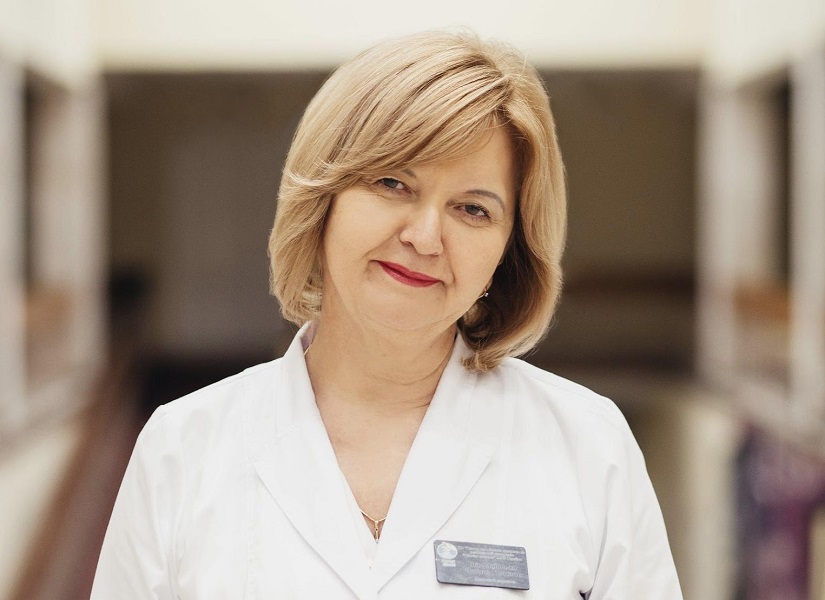We need more rehabilitation centres for the military – medical director of the Lisova Polyana rehabilitation centre Liubachivska
30 April 2024 13:37 БЛІЦ
БЛІЦ
Ukrainians are demonstrating incredible endurance and fortitude in this war, confidently bringing victory closer. However, with each new month of confrontation with Russian aggression, more and more soldiers need physical and psychological rehabilitation.
For these reasons, new centres for providing such assistance are emerging in Kyiv and other regions of Ukraine, or existing rehabilitation centres are expanding, such as the well-known Lisova Polyana Mental Health and Rehabilitation Centre or Glade Forest. This healthcare facility has been working with war trauma since 2014 and has extensive practical experience in treating psychological trauma, the effects of mild traumatic brain injury, and helping survivors of captivity and torture. Their work combines a creative, non-standard and humane approach to each patient. For this, the centre received the informal status of a “state institution with a human face”.
Recently, Lisova Polyana became the 7th Centre of Excellence of the Ministry of Health of Ukraine, where rehabilitation specialists will be trained.
In fact, we need to talk about the rehabilitation of the military in the most comprehensive way possible. What exactly do the military need now and in the future to socialise, join civilian life or continue their service as quickly as possible, what kind of rehabilitation can they receive and how to improve this process, [comersant] asked Natalia Lyubachivska, medical director of the Lisova Polyana Centre for Mental Health and Rehabilitation of Veterans.
– Which category of military personnel is most often admitted to rehabilitation today?
Almost 99.9% are active military personnel. There are also commissioned soldiers, but there are few of them – there are not enough free places. Our facility has a total capacity of 220 people. We also accept both military and civilians released from captivity. The charter of our institution allows us to accept the latter as well. However, our primary focus is on servicemen who need psychological rehabilitation, as we are a rehabilitation centre for mental health and rehabilitation of veterans. Although we do not refuse patients who also need physical rehabilitation.
– What type of psychological trauma is most common among the military?
Acute reaction to stress, PTSD, consequences of mine injuries, and acubarotrauma. If we talk about physical rehabilitation, it is people with amputated upper or lower limbs.

– Is the state budget sufficient to perform the necessary functions, purchase equipment, etc.?
I’m not going to comment on this issue.
– Is there a difference in the needs of the military until 2022 and now, with the start of a full-scale invasion?
Of course. We had a slightly different approach then. We were working in the old-fashioned way – we used more military drugs for treatment. Now we have changed our approach. For example, PTSD is treated not only with pills and intravenous injections, but also with other methods, and all this is being implemented in our institution.
– Obviously, you already understand that the need for rehabilitation will only increase after the war is over. Are you preparing for these challenges now?
There will be a great need for rehabilitation, both psychological and physical. Unfortunately, the number of our wounded soldiers is not decreasing but increasing. The demand will definitely increase – we can see this already on the example of our institution. Now I am already registering active military personnel for June – almost in the middle. I hope that we will not overload the facility too much, as we also depend on funding. I am booking some places – military units send us one or two soldiers each. It would be nice if the facility could accommodate 600-800 people, not 220.
– Is it possible to cover everyone who has a real request for rehabilitation? What, in your opinion, should be done to ensure that as many soldiers as possible receive the help they need?
We need more rehabilitation centres, and we need to think about where to open them. Perhaps, on the basis of hospitals, sanatoriums, construction of new ones… We need to think about this now. We don’t know when this war will end, but when it does, the number of soldiers in need of help will be very high.

– Have you considered expanding or increasing funding?
We are an institution subordinated to the Ministry of Health, so these decisions are made exclusively by the relevant ministry. Our director keeps in touch with the Ministry and constantly raises these issues. I know that a sanatorium from Odesa has been attached to our institution. It is in a very poor state of repair – there is a lot of work to be done, but it is being reconstructed. So we will have another branch. However, it’s too early to say how it will work in practice, because Kyiv and Odesa are quite far from each other, in my opinion. But we are already expanding, and the Ministry of Health is constantly working on this.
Author – Lesia Hnativa









